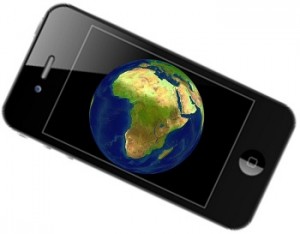The latest tech is becoming increasingly promising throughout the continent as other infrastructures lag.
The majority of Africa is faced with considerable struggles in terms of its internet coverage, electricity, governance, and even poverty, but when it comes to mobile technology, most of the continent is experiencing massive growth.
The latest types of mobile tech have proven to be extremely promising for the current African environment.
The whole region is proving to be a location that is offering a tremendous amount of opportunity for mobile technology innovation. This is particularly true when it comes to categories such as m-commerce and mobile payments. Entrepreneurs, particularly those in younger age brackets – are discovering new ways to be able to benefit from this type of tech, as they help others and make a profit at the same time.
The lives of millions of people in Africa are being changed in a meaningful way due to mobile technology.
 In the category of mobile payments and banking, the number of players in the market is starting to grow, as companies start to recognize that there is a massive population that has previously be unbanked and that can be effectively served through their mobile phones.
In the category of mobile payments and banking, the number of players in the market is starting to grow, as companies start to recognize that there is a massive population that has previously be unbanked and that can be effectively served through their mobile phones.
Some of the largest success stories in the mobile sector in Africa include payment systems organizations such as Cellulant, as well as others like M-Pesa. These have made it possible for Africans to skip over the traditional shortfalls of their internet and electricity infrastructure in order to dive right into accounts that are based on the devices that the majority of them already have – cell phones.
The impact has been a large and measurable one. The economies of many countries – such as Kenya, for example – have continued to be mainly cash focused, but now include a sizeable participation in mobile payments, as well. Previously, credit and debit cards had been used by only the smallest sliver of people, leaving only cash. Now, cash is losing ground to mobile technology at an ever increasing rate. This has been helpful not only to consumers, but also to businesses, education systems, and other organizations of virtually every size.
The industry is discovering that there are some serious benefits to implementing smartphone friendly strategies.
The World Tourism Organisation has reported that one of the primary socio-economic development drivers in Africa is the growing tourism industry, and mobile technology is playing an increasing role in the boom of international visitors to countries across that continent.
In 2000, there had been an estimated 26 million visitors to Africa, but by last year, that figure skyrocketed to 56 million.
FNB Business niches head, Wiza Nyondo, explained that “Tourism in Africa continues to prove its resilience despite numerous challenges across the continent. In South Africa, the sector faces challenges such as the lack of consistent power supply and restrained economic growth. However, a weaker Rand mitigates some of these factors as the country remains a cost-effective destination for international travelers.” Nyondo went on to express that mobile technology in tourism has created a “boom”, and that it is vital for the local sector to take hold of that information and use it to sustain the highly favorable growth rate.
Among the mobile technology offerings that were identified as beneficial were apps and payment systems.
 He explained that mobile tech developments have already shown themselves to be “differentiators for tourism industry players” because they give those various participants a means by which they can showcase their services and form a real-time connection with potential customers. Furthermore, the latest smartphone and tablet based tech makes it possible for clients to use mobile platforms for processing payments, which enhances the convenience for both tourists and the individuals and companies that are serving them.
He explained that mobile tech developments have already shown themselves to be “differentiators for tourism industry players” because they give those various participants a means by which they can showcase their services and form a real-time connection with potential customers. Furthermore, the latest smartphone and tablet based tech makes it possible for clients to use mobile platforms for processing payments, which enhances the convenience for both tourists and the individuals and companies that are serving them.
Among the primary challenges being faced at the moment is in the speed of the rollout of new and useful technologies and in the expansion and improvement of the current infrastructure. The reason is that those components are large scale projects but they will be absolutely vital to the evolution of mobile marketing, m-commerce, and smartphone based banking and payments on the African continent.
Nyondo also pointed out that the continued success and contribution of mobile technology in tourism will require “a strong and highly competitive local banking sector”.
 In the category of mobile payments and banking, the number of players in the market is starting to grow, as companies start to recognize that there is a massive population that has previously be unbanked and that can be effectively served through their mobile phones.
In the category of mobile payments and banking, the number of players in the market is starting to grow, as companies start to recognize that there is a massive population that has previously be unbanked and that can be effectively served through their mobile phones.
 He explained that
He explained that 